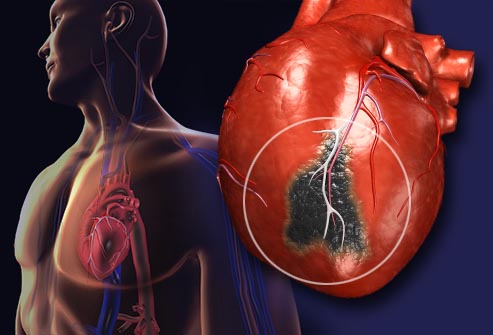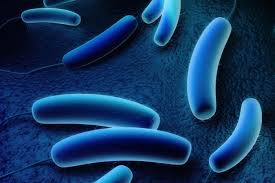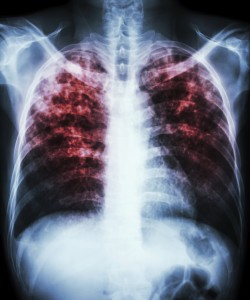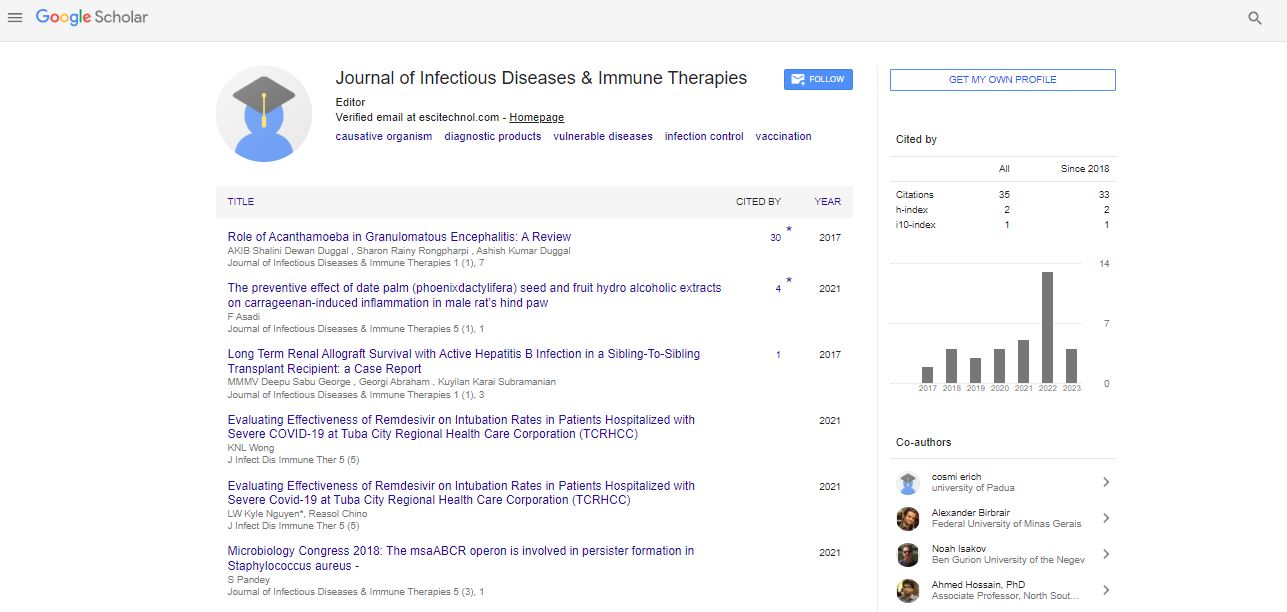About the Journal of Infectious Diseases & Immune Therapies
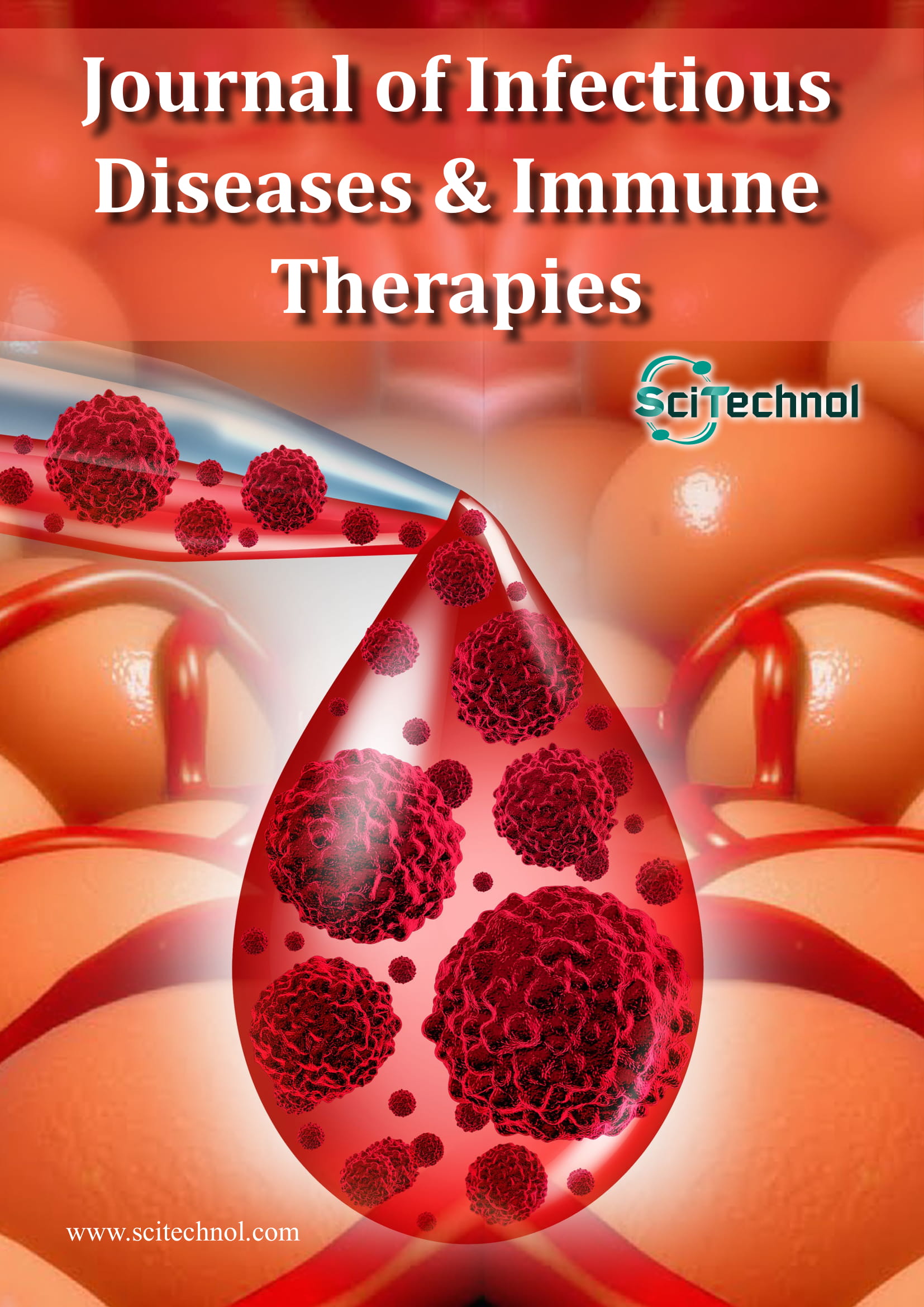
Journal of Infectious Diseases & Immune Therapies is a peer reviewed, open access Journal dedicated to publishing the latest advancements related to infectious diseases and immunotherapies.
The journal deals with the publication of superior-quality preclinical, clinical (all phases), Treatment studies, observational studies, seasonal studies related to infectious diseases around the world, towards the etiology of the infectious organism, pathogenesis related to the causative organism, diagnosis of the disease by various diagnostic products, infection control, preventing the spreading of these vulnerable diseases by vaccination.
The journal places special emphasis on studies pertaining to immune therapies focussing on the etiopathogenesis, management of the infection, antibiotic resistance, pharmacoeconomics, prognosis, patient care, counselling, education of the new discoveries and advanced therapies.
Submit manuscripts at Online Submission System or as an e-mail attachment to the Editorial Office at editorialoffice@scitechnol.com
The journal aims to focus on the specific areas include, but are not restricted to:
- Infectious diseases
- Pathogen cell biology
- Transmissive or blood infections
- Bacterial infections
- Viral infections
- Mycotic infections
- Intestinal diseases
- Immunopathogenesis
- Chronic infection
- Pandemic and epidemic diseases
- Immunology
- Antimicrobial resistance
- Autoimmune diseases
- Cancer immunotherapy
The Journal accepts articles in the formats of: original research articles, reviews, short communications, case reports, letters-to-the-Editor and editorials for publication. All the published articles can be accessed online without any subscription charges and will benefit from extensive visibility.
All articles are peer reviewed by experts to ensure quality, originality, and reliability. Approval by at least two independent reviewers and the editor is mandatory for the acceptance of the manuscript for publication.
Infectious diseases
Infectious diseases are the disorders caused by organisms like bacteria, virus, fungi or other parasites. These infections can spread among the population directly or indirectly. Zoonotic diseases are infectious diseases of animals that are transmitted to humans. These infectious diseases include Tuberculosis (TB), Malaria, HIV/AIDS and Hepatitis.
Pathogen cell biology
Pathogens are the organism which invades our body and creates environment suitable for their survival. They will reproduce in the moist, warm and nutrient-rich human host. These pathogen may be bacteria, virus, fungi and protozoans.
Transmissive or blood infections
Diseases caused by the blood transfusion includes transmission of causative agents like bacteria, viruses and parasites through blood leading to HIV infection, Hepatitis, Chagas disease, Leishmaniasis, plague, malaria, typhus and relapsing fever.
Bacterial infections
Bacterial infections reproduce quickly in the body of the host by releasing chemical toxins which will damage the tissues. Many are caused by bacterium called as Streptococcus, E. coli and Staphylococcus Some of the bacterial infections are cholera, plague, dysentery, staphylococcal and streptococcal infections, salmonella, meningitis which will be treated by antibiotics.
Viral infections
These are infections caused by viruses which are made up of genetic coating covered by a protein layer. These generally invade healthy host and make duplicate copies like them by multiplying. These viruses will attack tissue such as blood and liver. Viral infections include HIV/AIDS, Ebola, Marburg virus disease and smallpox.
Mycotic infections
Fungal infections generally caused by colonization at tissue level and classified as superficial infections, cutaneous infections and subcutaneous infections. Infections like athlete, aspergillosis, candidiasis, mucormycosis, cryptococcosis, chromomycosis are caused by fungus, Scandinavian Journal of Infectious Diseases.
Intestinal diseases
These are caused when the infective organism enters either small or large intestine leading to the inflammation. Some of the intestinal diseases include cholera, salmonella, dysentery, foodborne diseases, paratyphoid A and B, typhoid fever.
Immunopathogenesis
The pathogenesis of immune system involves Innate immunity and Adaptive immunity. Innate immunity is the first line defence mechanism towards the pathogen and non-specific. It is unable to recognize the same pathogen when the body exposed to it in the future. Adaptive immunity is antigen-dependent and specific therefore it takes more time to give response after the exposure to the organism.
Chronic infection
Chronic infections are the conditions, where the immune system fails to fight the infective agent leading to the inflammation of tissues. These are the acute infections which will lasts up to months and years. These chronic infections act by causing nutritional deficiencies, increasing stress on the adrenal glands and immune system. Typical Chronic Infections includes Hepatitis C, HIV/AIDS, Mycoplasma, Epstein Barr Virus/Cytomegalovirus, Chronic Fatigue Syndrome/Fibromyalgia and Gulf War Syndrome.
Pandemic and epidemic diseases
Epidemic diseases and Pandemic diseases differ in outbreak of the disease. An epidemic disease spreads to many people rapidly while the pandemic disease is an global outbreak. The humans will not have immunity towards it and everyone will be at risk.
Immunology
Immunology is the study of the immune system of the body and is an important branch of the medical and biological sciences. The immune system plays major role in protecting us from infections from various kind of defences. The malfunctioning of the immune system leads to autoimmune disease, allergic reactions and cancer.
The immune system is build-up of up many cells at molecular level that are distributed in every tissue and in some specialized lymphoid organs of the body which helps in preventing the microbial infections, suppressing the growth of tumours and also in initiating the repair of damaged tissues. The normal mechanism of the immune system includes recognising the foreign molecules and self-damaged cells excluding the healthy host cells and tissues.
Antimicrobial resistance
Antimicrobial resistance occurs when the microorganism such as bacteria, virus and fungi changes after exposed to antimicrobial drugs like antibiotics, antivirals and antifungals which makes the medicine ineffective. The infection persists in the body and increases the risk by spreading among others.
Autoimmune disease
Autoimmune disease is a disease resulting from abnormal responses of immune system or diseases due to disordered immune reaction. Our immune system develops antibodies that fight against disease causing foreign cells, but in case of autoimmune diseases it recognises our body healthy cells as foreign bodies and attacks them as a result functioning of the organ and it can lead to destruction and abnormal organ growth. There are almost 80 types of autoimmune diseases with similar symptoms, making them difficult to diagnose.
Cancer Immunotherapy
Cancer Immunotherapy is a therapy in which body’s own immune system components were used to treat cancer. This method reveals a fact that cancer causing cells will have certain molecules on their surfaces which can be detected by our immune system known as tumour associated antigens. Types of cancer immunotherapy include Monoclonal antibodies, Immune checkpoint inhibitors, and Cancer vaccines.
Fast Editorial Execution and Review Process (FEE-Review Process):
Journal of Infectious Diseases & Immune Therapies is participating in the Fast Editorial Execution and Review Process (FEE-Review Process) with an additional prepayment of $99 apart from the regular article processing fee. Fast Editorial Execution and Review Process is a special service for the article that enables it to get a faster response in the pre-review stage from the handling editor as well as a review from the reviewer. An author can get a faster response of pre-review maximum in 3 days since submission, and a review process by the reviewer maximum in 5 days, followed by revision/publication in 2 days. If the article gets notified for revision by the handling editor, then it will take another 5 days for external review by the previous reviewer or alternative reviewer.
Acceptance of manuscripts is driven entirely by handling editorial team considerations and independent peer-review, ensuring the highest standards are maintained no matter the route to regular peer-reviewed publication or a fast editorial review process. The handling editor and the article contributor are responsible for adhering to scientific standards. The article FEE-Review process of $99 will not be refunded even if the article is rejected or withdrawn for publication.
The corresponding author or institution/organization is responsible for making the manuscript FEE-Review Process payment. The additional FEE-Review Process payment covers the fast review processing and quick editorial decisions, and regular article publication covers the preparation in various formats for online publication, securing full-text inclusion in a number of permanent archives like HTML, XML, and PDF, and feeding to different indexing agencies.
 Spanish
Spanish  Chinese
Chinese  Russian
Russian  German
German  French
French  Japanese
Japanese  Portuguese
Portuguese  Hindi
Hindi 
